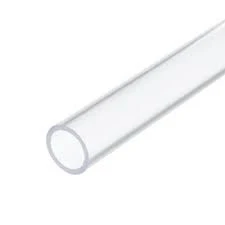نوفمبر . 10, 2024 20:59 Back to list
HDPE Pipes for Efficient Drip Irrigation Systems and Sustainable Agriculture Solutions
The Importance of HDPE Pipe in Drip Irrigation Systems
In the realm of modern agriculture, efficient water management has become a critical factor in ensuring sustainable crop production. One of the most effective methods of irrigation, particularly in water-scarce regions, is drip irrigation. This system allows water to drip slowly to the roots of plants, minimizing evaporation and runoff. At the heart of this technology lies one of the most versatile and durable materials High-Density Polyethylene (HDPE) pipe.
HDPE pipe is renowned for its strength and flexibility, making it an ideal choice for drip irrigation systems. Unlike traditional materials such as metal or PVC, HDPE is resistant to corrosion, ensuring a longer lifespan for irrigation systems. This durability is particularly important in the agricultural sector, where pipes are exposed to various environmental factors such as UV radiation, soil conditions, and chemical fertilizers. HDPE's inert nature ensures that it does not leach harmful substances into the soil or water, which is crucial for maintaining soil health and producing safe food.
The Importance of HDPE Pipe in Drip Irrigation Systems
HDPE pipes are also lightweight and easy to install, which further enhances their appeal in drip irrigation systems. Traditional irrigation systems often require heavy machinery for installation, contributing to soil disturbance and compaction. In contrast, HDPE pipes can be easily transported and handled, allowing for quick setup and reduced labor costs. The flexibility of HDPE means that it can be installed in various configurations, adapting to the specific needs of different crops and field layouts.
hdpe pipe for drip irrigation

Additionally, the design of HDPE pipes accommodates various emitter types, enabling farmers to customize their irrigation systems. Different crops have different water requirements, and HDPE pipes can be fitted with emitters that release water at varying rates, ensuring that each plant receives the optimal amount of moisture. This level of customization enhances crop yields and promotes healthy plant growth.
Furthermore, HDPE pipes can withstand high pressure, making them suitable for various irrigation applications. They are resistant to impact and can endure the rigors of agricultural machinery passing over them. This resilience reduces the likelihood of leaks and breaks, which can lead to costly repairs and water loss. By minimizing maintenance needs, farmers can focus on crop production rather than worrying about their irrigation infrastructure.
In terms of environmental sustainability, HDPE is also a good choice. It is a recyclable material, making it a more eco-friendly option compared to many traditional irrigation materials. As the demand for sustainable agricultural practices rises, the use of HDPE pipes aligns with the broader effort to reduce plastic waste and promote greener farming techniques.
In conclusion, the incorporation of HDPE pipes in drip irrigation systems represents a significant advancement in agricultural practices. Their durability, water efficiency, and adaptability make them an essential component for modern farmers seeking to optimize resource use while maximizing crop yields. As climate change continues to impact water availability worldwide, innovations in irrigation technology such as HDPE pipes will play a crucial role in the future of sustainable agriculture. Farmers who embrace these advancements not only secure their own livelihoods but also contribute to the health and resilience of our planet's agricultural ecosystems.
-
High-Precision PVC Rigid Sheets for Vacuum Forming | AI-Optimized
NewsAug.05,2025
-
Durable PVC-M Water Supply Pipes | 60-Year Life
NewsAug.04,2025
-
Premium HDPE Water Supply Pipes: Durable & Leak-Proof
NewsAug.03,2025
-
Premium PVC-M Water Supply Pipe - Durable & Efficient
NewsAug.02,2025
-
HDPE Drainage & Irrigation Pipe - Durable, Efficient Solutions
NewsAug.01,2025
-
Premium PVC Transparent Pipe: Durable & Clear Solutions
NewsJul.31,2025

